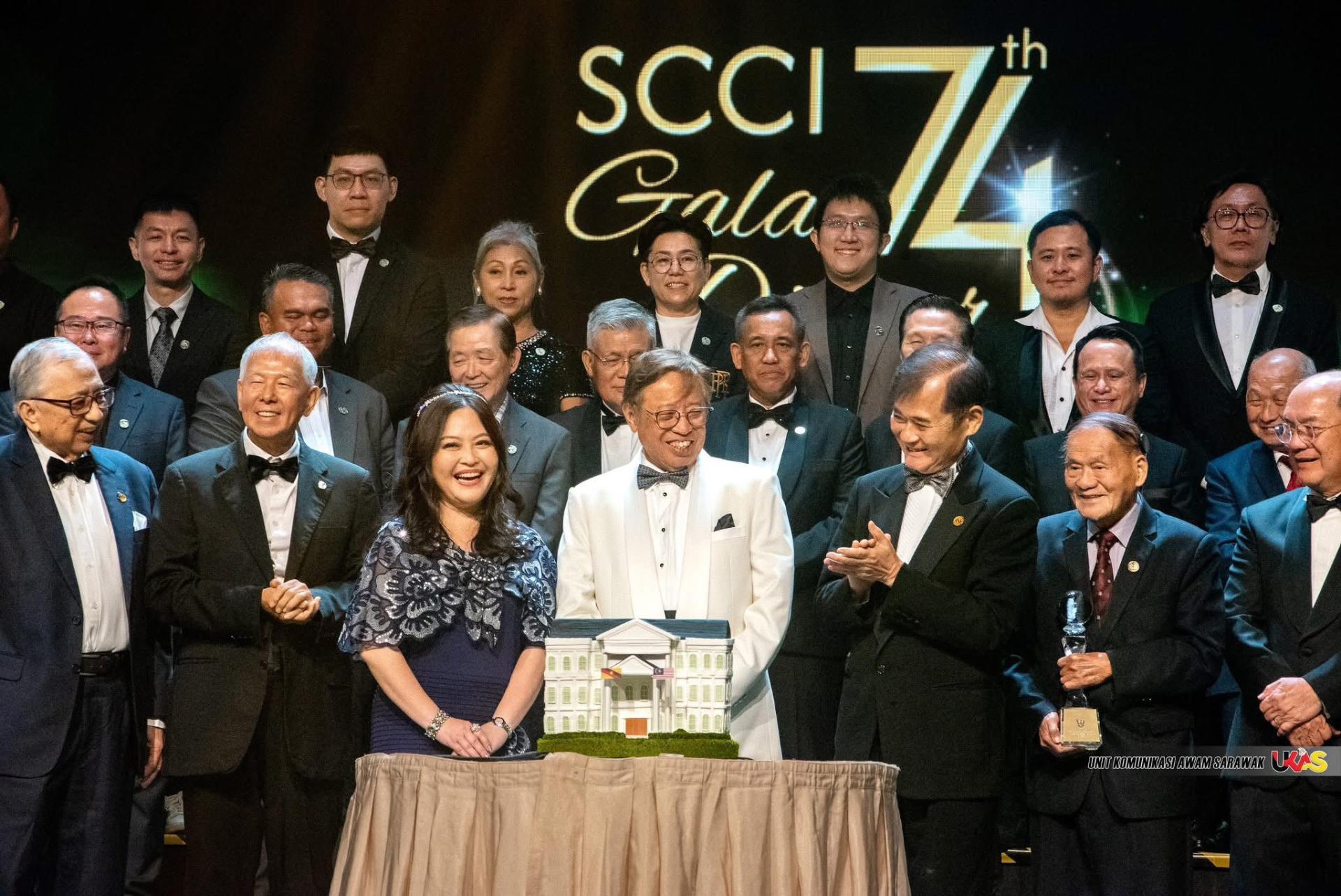KUCHING: Sarawak is still studying the feasibility of introducing a basic income or social pension scheme for senior citizens as such an initiative would require strong financial capacity and a sustainable pension fund.
In stating this, Premier Datuk Patinggi Tan Sri Abang Johari Tun Openg said while the proposal is promising, the state must first strengthen its financial foundation before extending such a right to citizens.
“Some countries have adopted it. But some countries are still studying it. For us, we are studying whether it is feasible or not to have that basic income policy.
“At the moment, we are focussing to increase the disposable income and household income of our people in order to reduce poverty,” he said.
He said this during the Sarawak Chamber of Commerce and Industry’s (SCCI) 74th Gala Dinner held at Borneo Convention Centre Kuching (BCCK) here on Friday night, in response to the proposal raised by SCCI President, Datuk Philip Ting.

Ting had called upon the state government to consider implementing a basic income or social pension scheme to strengthen social protection and stimulate domestic economic growth.
Abang Johari, who is also the Finance and New Economy Minister, said the state is also focusing on expanding access to education and strengthening human capital development.
“We know that to minimise poverty, the people must have knowledge. That is why we will provide free tertiary education for all Sarawakians studying in Sarawak universities,” he said.
He said higher education will directly boost household income, as graduates are more likely to secure employment.
“If you have two graduates in a family, the household income will increase by virtue of them being employed in high-income sectors.
“And if they are hardworking, like our entrepreneurs, they can grow their income further beyond Sarawak’s borders,” he said.
Abang Johari added that Sarawak’s development strategy is by combining its natural capital with strong human capital.
“Singapore does not have natural capital but they have human capital, and they are successful.
“Sarawak, can be successful with both. That is why I said perhaps one day we will become the star of ASEAN,” he said.
Earlier, Ting said the proposed scheme, which he described as a “Pillar Zero” retirement income, would provide a monthly payment of about RM200 to all Sarawakians aged 60 or 65 and above, for life.
He said basic income is already recognised and practised in more than 100 countries and is increasingly regarded as a basic human right, as well as a driver of economic growth and improved income equality.
Ting added that retirees have a high marginal propensity to consume, and such a pension would significantly stimulate the economy.
“Studies show that retired people will easily add at least a five-times multiplier to their spending. Based on environmental calculations, a RM200 monthly pension for those over 60 could increase Sarawak’s domestic GDP by RM200 million per month,” he said.
“This would also stimulate he domestic private sector and act as an economic leveller to benefit the rural poor most.”
